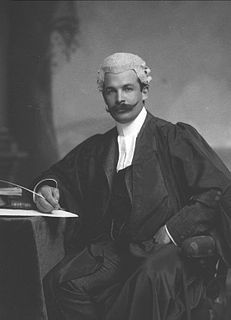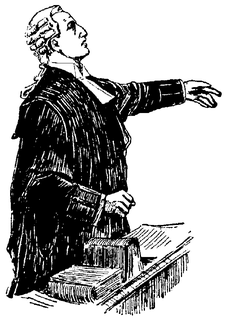The title of Senior Counsel or State Counsel (post-nominal letters: SC) is given to a senior lawyer in some countries that were formerly part of the British Empire. "Senior Counsel" is used in current or former Commonwealth countries or jurisdictions that have chosen to change the title "Queen's Counsel" to a name without monarchical connotations, sometimes (but not always) because the British monarch is no longer head of state, such that reference to the Queen is no longer appropriate. Examples of jurisdictions which have made the change because of the latter reason include Mauritius, Zambia, India, Hong Kong, the Republic of Ireland, South Africa, Kenya, Malawi, Singapore, Guyana and Trinidad and Tobago. Just as a junior counsel is "called to the [Outer] Bar", a Senior Counsel is, in some jurisdictions, said to be "called to the Inner Bar". Senior Counsel may informally style themselves as silks, like their British counterparts. This is the case in Ireland, Australia, Hong Kong and South Africa.
Post-nominal letters, also called post-nominal initials, post-nominal titles or designatory letters, are letters placed after a person's name to indicate that that individual holds a position, academic degree, accreditation, office, military decoration, or honour, or is a member of a religious institute or fraternity. An individual may use several different sets of post-nominal letters, but in some contexts it may be customary to limit the number of sets to one or just a few. The order in which post-nominals are listed after a name is based on rules of precedence and what is appropriate for a given situation. Post-nominal letters are one of the main types of name suffix. In contrast, pre-nominal letters precede the name rather than following it.

A lawyer or attorney is a person who practices law, as an advocate, attorney, attorney at law, barrister, barrister-at-law, bar-at-law, civil law notary, counsel, counselor, counsellor, counselor at law, solicitor, chartered legal executive, or public servant preparing, interpreting and applying law, but not as a paralegal or charter executive secretary. Working as a lawyer involves the practical application of abstract legal theories and knowledge to solve specific individualized problems, or to advance the interests of those who hire lawyers to perform legal services.

The British Empire comprised the dominions, colonies, protectorates, mandates and other territories ruled or administered by the United Kingdom and its predecessor states. It originated with the overseas possessions and trading posts established by England between the late 16th and early 18th centuries. At its height, it was the largest empire in history and, for over a century, was the foremost global power. By 1913, the British Empire held sway over 412 million people, 23% of the world population at the time, and by 1920, it covered 35,500,000 km2 (13,700,000 sq mi), 24% of the Earth's total land area. As a result, its political, legal, linguistic and cultural legacy is widespread. At the peak of its power, the phrase "the empire on which the sun never sets" was often used to describe the British Empire, because its expanse around the globe meant that the sun was always shining on at least one of its territories.
Contents
- Dress
- Australia
- Hong Kong
- Ireland
- New Zealand
- Singapore
- South Africa
- United Kingdom
- Similar titles
- References
A second usage, prevalent in the United Kingdom itself (which retains the separate and distinct Queen's Counsel title for barristers) refers to a solicitor who is senior and autonomous, but is neither a partner nor on the career path to partnership.
A solicitor is a legal practitioner who traditionally deals with most of the legal matters in some jurisdictions. A person must have legally-defined qualifications, which vary from one jurisdiction to another, to be described as a solicitor and enabled to practise there as such. For example, in England and Wales a solicitor is admitted to practise under the provisions of the Solicitors Act 1974. With some exceptions, practising solicitors must possess a practising certificate. There are many more solicitors than barristers in England; they undertake the general aspects of giving legal advice and conducting legal proceedings.












